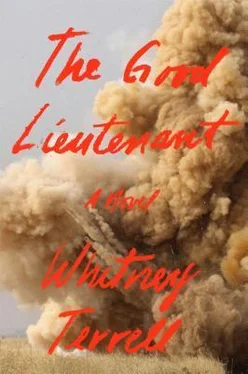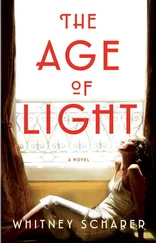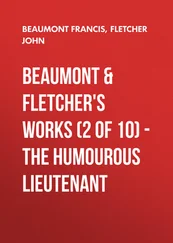“He stole our shit.”
“Who, Masterson? You mean the guy that you’ve been following around for the past six months, telling me he’s the biggest fucking genius in the Army?”
“I might have been wrong about that.”
“Wrong!” she sputtered. And then she could feel that it was on her, the mad moment. “Wrong?”
“Whoa, whoa, whoa,” Beale said with his hands out, splayed flat. “Fellas, need a little help here.”
“You pissed her off enough yet, Beale?”
“What?” she said, standing up. When she turned, she could see a door behind their booth, its edge cracked, shadowed faces peering out. “No, you didn’t,” she said.
“Oh, no, he didn’t!” Beale said, repeating her phrase with a bucktoothed grin. He started waving the dark faces in and the door behind their booth opened and the rest of her platoon came out of it: Dykstra first, in his Philadelphia Flyers jersey, worn over the top of a blue flannel shirt. Crawford in his skinny jeans and sweater. Jimenez in a black hoodie decorated in gold lamé, Waldorf hulking out of the darkness in a starched blue oxford and, of all things, a suit vest buttoned tight around his stomach, and last of all, Pulowski in his Dockers and what she was surprised and pleased to recognize as his version of a “nice shirt”: A long-sleeve, rugby-type jersey in maroon and navy, probably purchased for him by his mother, and the black turtleneck that he tended to refer to as his “geek tie.” Briefly — she was corkscrewed in her seat, her thighs jammed between the table edge and the banquet — he caught her eye, and Pulowski made a twisted, goofy face, wobbling his head on his shoulders, as if to suggest that he was just following along with the crowd and had no idea why he was here.
Then there were hands on her shoulders, forcing her back down into her seat, voices, a press of bodies, everybody shouting simultaneously.
“To the queen of the DRIF, motherfuckers!” Beale said.
“Queen,” Jimenez said. “Who you calling queen, man? We don’t need no fucking gender-specific shit like that.”
“What, I got to be politically correct when I hand out compliments?” Beale said.
“Holy shit, did Beale say he was giving somebody a compliment?”
“I didn’t hear no compliment.”
“Queen is a compliment, motherfucker.”
“Not in this country, it ain’t.”
Mugs were passed. A pitcher of soda came. Everybody was jostling, chanting, giving Beale shit about something indistinct, and in order not to betray her emotion, or to look at Pulowski again, she started examining the Cracker Barrel menu, trying not to look up at any of them, or lose control of herself in an embarrassing way. “We got to have a speech,” Waldorf said from the far end of the table. “Speech! Speech!”
“Get your own speaker, Waldorf,” she said. “I got to eat.”
“I’ll say something,” Beale said, standing up.
It was not exactly the kind of place where she’d imagined having her first-ever military success. If at any point during the dinner someone had stood up and accused her of knowing nothing about what they were about to do, what dangers they were about to face, she would’ve confessed to this immediately. In part she feared this, and in part she wished that it would occur, so that she could get it over with, climb up out of the booth, strip off her ACUs and her lieutenant’s bars and go put on a brown apron and get back to waitressing with Susie Wrightman — doing something in which the worst-case scenario was that you got tipped badly, or had to work an extra shift, and nobody ended up dead. In the end, she was rescued from having to say anything further by the advent of the K-State basketball game. One of the servers had set up a portable TV on a table in the corner of the restaurant, below a two-man wood saw that had been nailed to the wall, and the players flickered soundlessly on its screen. Gradually, because she’d started watching it, they all turned that way. She let her eyes linger on the set, the glowing, orderly court, the cheerleaders waving their pom-poms, all of it more magical and electric and satisfyingly vivid compared with the long concrete vistas of the DRIF, the steady brown and tan colors of the base. After a while, she dropped her gaze, in order to pay attention to the food that she’d ordered, and she saw Pulowski watching her instead of the game. He had a sly expression on his face, his eyebrows raised, one that seemed to say that this moment, at this table, proved everything he’d been telling her about her ability to command. Suggesting that she’d made exactly the right call to break the rules and get Beale off. “What’re you looking at, Pulowski?” she said. “When did I get so interesting?”
She reached out and palmed the black padded book that Susie Wrightman had brought over, containing their table’s tab, brushing his fingers as she did it, briefly but firmly, giving no sign to the rest of the platoon that she had done such a thing.
“Pulowski.” A winter Sunday night at the Harmony Woods apartment complex on the outskirts of Junction City — known locally as Fort Riley West. Pulowski was reading over an article on Fourier transform pairs describing how certain wave forms naturally correspond to each other despite being in different domains. McKutcheon had switched off his cell, jammed a snowboard into his Subaru, and headed to Colorado for the weekend. Fowler was away, her apartment windows dark across the snowy dimple of the complex yard, probably off doing some sort of extra brown-nose work for Hartz, and so Pulowski had been expecting … well, nothing. No visitors for the evening. He had his sweatpants on, wool socks, a pair of fleece-lined slippers mailed to him by his mother, and he was sitting at the kitchen table with a blanket over his legs, reading and occasionally glancing up at the apartment’s flat-screen, which he had, in an attempt to feel adult and responsible, tuned in to the NewsHour with Jim Lehrer . He shifted his gaze to the sliding black pane of his living room’s glass door, seeing a reflection of himself, blanket tucked neatly around his knees, Diet Coke open on the table, and then, looming up just behind his reflection, so that their faces mingled in the glass, Fowler in a black stocking cap and parka, her gloved hands beckoning for him to let her in. “Come on,” she said, her voice still muffled by the glass. “We got to go get Beale. Let me in.”
Beale, as far as he was aware, didn’t need getting. Still, five minutes later, Fowler stood inside the sliding door, her hair haloed by the static of her removed cap, waiting for him to get dressed. No information on where they were going, except that he was to wear civilian gear: parka, jeans, gloves, hat, boots. No ACUs. There was something mischievous and off-center in the way Fowler made this request — an energy, a confidence. The kind of self he saw in bed. Even so, as he tramped out the back door of his apartment, he’d experienced a small jolt of fear and displacement as if, however much he might have agreed with the spirit of this adventure, he wasn’t sure that he belonged with her as a part of it, whatever it might be. “Tunes,” a voice growled as he climbed into Fowler’s truck, and he was surprised to see Dykstra lying on his side in the backseat, dressed in a red-and-black checked woodsman’s jacket, his jowls caked with camouflage face paint. “Hey, welcome to special operations, Lieutenant,” he said, cuffing Pulowski on the shoulder. “See if you can coax some music out of the LT.”
They pulled through town, past the Casey’s General Store, past the strip mall where he and Fowler sometimes ate Chinese, past the mournful city hall, with its wind-stripped tinsel. Then the highway ran straight and flat, eddying with snow beyond the pickup’s headlights, and beyond that the white fields glossily and ghostly lit. Pulowski scanned the truck’s radio dial, picking up scratchy stations from impossibly far away: WGN in Chicago, a pastor preaching from Vancouver, a weather report from Arlington, Texas, and the news. The signals that brought their voices down through the truck’s antenna and into the cab were the very thing he’d been reading about back home, safe in his apartment. At one point, the scanner landed on a velvet-voiced news announcer, who said, “The Department of Defense has confirmed three more deaths in Iraq today. Private William O’Connor died when his Humvee was hit by an improvised explosive device in Anbar Province.” For a moment, this signal sent a chill down his spine, like the snow that had fallen into his collar on his way to the truck, foreign to the warmth that the three of them generated in the small cab. The next channel was country music, and Fowler reached out and punched the button, ended the scan, and they drove together listening to Garth Brooks without complaint.
Читать дальше












